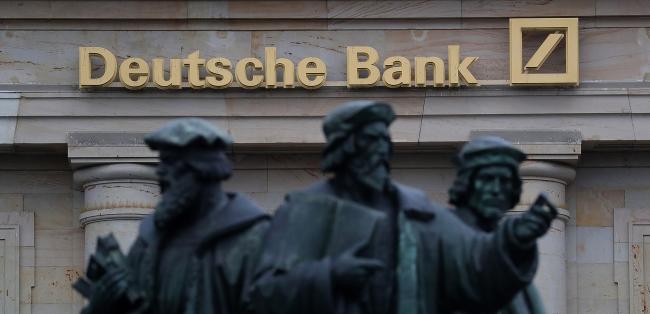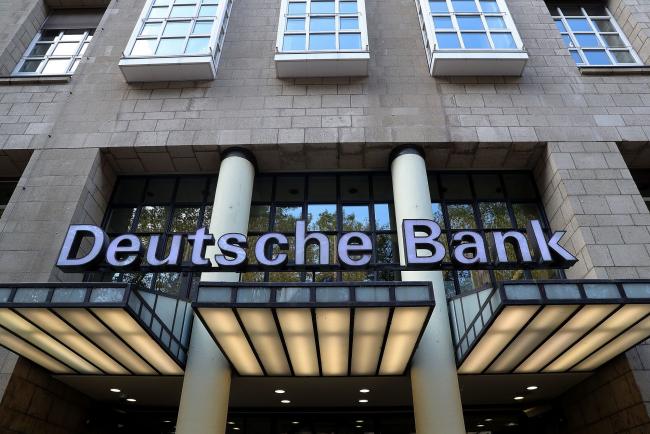(Bloomberg) -- Europe’s finance industry has seen its global sway erode dramatically and the main weapon being used to boost the continent’s economies is making things worse, a top Deutsche Bank AG (NYSE:DB) executive warned Wednesday.
The region’s banks and insurers “have lost dramatic amounts of ground,” with only one still ranking in the top 20 globally by market value, compared with six before the financial crisis, Deutsche Bank AG President Karl von Rohr said Wednesday at Bloomberg LP’s Future of Finance conference in Frankfurt. While challenges abound -- from an erratic trade war to Brexit to unrest in Hong Kong and Chile -- they pale in comparison with the headwinds for banks from low and negative rates, he said.
“The biggest challenge facing the European financial industry is the persistent and structurally low interest rate environment,” von Rohr said in prepared remarks. “Negative interest rates are a burden on the financial system as they turn long-standing certainties upside down.”
The comments add to a growing chorus of critics warning of the implications from years of low and -- in the case of Europe -- negative rates. David Solomon, the chief executive officer of Goldman Sachs Group Inc (NYSE:GS)., said Tuesday that history is unlikely to look back favorably at the “experiment of negative rates,” which in his view was holding back the region. Deutsche Bank CEO Christian Sewing has warned they will “ruin the financial system” in the long run.
The European Central Bank has imposed negative interest rates on deposits for more than five years, pushing the rate even further down in September. That has complicated Sewing’s plan to refocus the lender on its roots catering to European corporations. The bank had to soften a revenue goal just two months after announcing it as a reversal in expectations for interest rates weighs on income from lending.
Deutsche Bank Chief Financial Officer James von Moltke said last week the bank is now intensifying efforts to pass on the negative interest rates to clients to offset the headwinds. About a fifth of the deposits in the lender’s retail and wealth management division could potentially be targeted and he wouldn’t mind if deposits “walk out the door,” von Moltke said on a call with analysts.
Von Rohr said Deutsche Bank won’t pass the cost of negative rates on to average retail clients, but the questions was “relevant” for large corporate clients and the very wealthy.
Compared with the U.S., where banks receive interest on deposits from the Fed, the disadvantage from negative rates costs European lenders almost 40 billion euros ($44 billion) a year, he said. Tiering -- a system by which the ECB exempts some deposits from negative rates -- was providing only “a tiny bit of relief.”
To help fix those problems, von Rohr said European lawmakers need to tackle long-standing structural issues, such as the lack of a unified market for capital and for financial services -- a political project known as banking union -- which makes consolidation across national borders difficult and leaves them at a disadvantage to Wall Street.
Negotiations at the EU level about the banking union are currently at an impasse, not least because Germany has been resisting plans to create a common deposit insurance for the entire bloc. The country’s Finance Minister Olaf Scholz on Wednesday sought to break the deadlock in discussions over European banking integration by signaling the country may drop its opposition to a key part of the plan.

